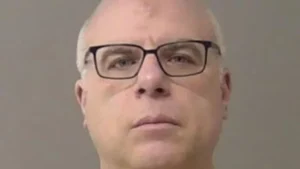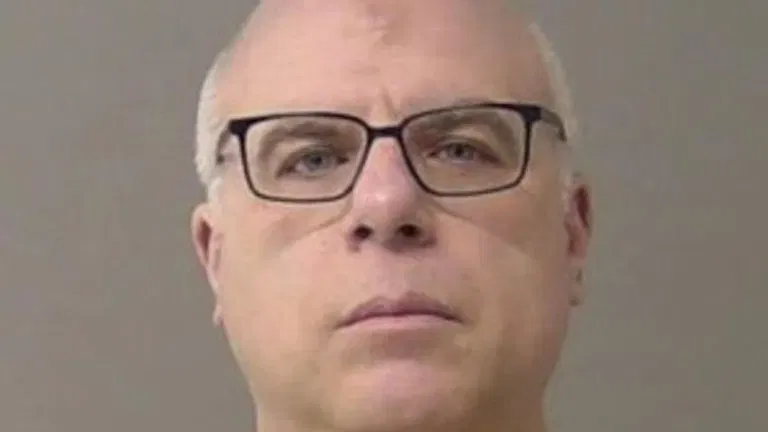SPRINGFIELD, Ill.
 Former Illinois State Senator William Samuel McCann Jr, 54, was sentenced this week to 42 months of imprisonment, officials stated.
Former Illinois State Senator William Samuel McCann Jr, 54, was sentenced this week to 42 months of imprisonment, officials stated.
The judge ordered McCann to pay $683,816 in restitution for fraudulent use of campaign funds, money laundering, and tax evasion.
The evidence indicated that McCann engaged in a broad, five-year scheme to defraud by converting more than $600,000 in campaign funds to his personal use at the sentencing hearing and during the bench trial in February.
In sentencing McCann, U.S. District Judge Colleen Lawless stated that McCann betrayed the public trust and continued his fraud even after being questioned by his campaign employee and confronted by federal law enforcement officers.
In addition, Judge Lawless found it aggravating that McCann attempted to commit fraud on the court by falsely representing that he was physically and mentally incapable of proceeding to trial.
 McCann, of Plainview, Illinois, served as a state senator for the 49th District of Illinois from 2011 to 2013, and for the redrawn 50th District from 2013 to January 2019.
McCann, of Plainview, Illinois, served as a state senator for the 49th District of Illinois from 2011 to 2013, and for the redrawn 50th District from 2013 to January 2019.
McCann formed the Conservative Party of Illinois and, in 2018, launched an unsuccessful bid for Illinois governor.
McCann previously lived in Carlinville, Illinois, and owned and operated two construction-related businesses.
McCann organized multiple political committees that were registered with the Illinois State Board of Elections: Sam McCann for Senate, Sam McCann for Senate Committee, McCann for Illinois, and the Conservative Party of Illinois.
From April 2011 to November 2018, McCann and his political committees received more than $5 million in campaign donations.
The evidence indicated that McCann used campaign funds to purchase personal vehicles, pay personal debts, make mortgage payments, and pay himself, including the following:
- In April 2018, McCann used $18,000 in campaign funds to buy a 2018 travel trailer. In May 2018, he spent $25,000 in campaign funds on a 2006 motor home. Both vehicles were titled in his name.
- McCann created an online account with an Ohio RV rental business, listing himself as the owner of the vehicles. He then made a second account with the same business, using the name William McCann, with a different address and email, posing as a potential renter.
- From approximately May 2018 to June 2018, McCann, while representing himself as the renter, rented both the travel trailer and motor home from Sam, the owner, through the RV rental business.
- McCann used about $62,666 in campaign funds to pay for renting the vehicles. The rental business kept $9,838 as commission and paid McCann, the owner, around $52,827 via direct deposit to his personal account. He reimbursed the campaign accounts for $18,000, resulting in over $77,000 of campaign funds being used to buy and rent himself.
- Around October 4, 2016, McCann used a $20,000 cashier’s check from a campaign account to pay off a personal loan, including legal fees. This loan, originally issued as an equipment loan in 2011, was in collection due to non-payment.
- From May 2015 to August 2020, McCann used campaign funds to pay approximately $64,750 on two separate personal mortgage loans that were secured by his former residence in Carlinville and an adjoining property used as an office for his construction business.
- In November 2018, after an unsuccessful campaign for Governor of Illinois, when he was no longer a candidate for office and did not financially support any other candidate, and continuing to June 2020, McCann caused the Conservative Party of Illinois to issue approximately $187,000 in payments to himself personally and an additional $52,282 in payments for payroll taxes. Using a payroll service, McCann was able to conceal himself as the payee for the expenditures from the campaign account.
- McCann also converted more than $100,000 in campaign funds for payment of personal expenses, including Green Dot credit card payments related to a family vacation in Colorado and other personal expenses; charges from Apple iTunes, Amazon, a skeet and trap club, Cabela’s, Scheels, Best Buy, and a gun store; and cash withdrawals.
- In relation to his joint return for the calendar year 2018, McCann failed to report income from his 2018 rental payments to himself for the RV trailer and motor home.
- In addition, in March 2018, McCann used a $10,000 check issued by a campaign account to make a down payment to a Shipman, Illinois, business for a motor home.
- When the purchase was not completed, the business issued a $10,000 refund check payable to William McCann, which he deposited to his personal checking account and failed to report as income received.
During the third day of his bench trial, McCann pleaded guilty to all nine counts of the indictment, which charged him with seven counts of wire fraud, one count of money laundering, and one count of tax evasion related to his alleged misuse of campaign money for personal expenses.
The court revoked McCann’s pretrial release and ordered his detention prior to the commencement of the trial.
The statutory penalty for each count of wire fraud (seven counts) and one count of money laundering is up to 20 years in prison. For tax evasion, the statutory penalty is up to five years in prison.
Following the sentencing, U.S. Attorney Gregory K. Harris stated: “As Judge Lawless explained in imposing sentence, McCann brazenly betrayed the public trust by engaging in a five-year scheme to defraud and converting more than $600,000 in campaign funds to his personal use. Today’s sentence appropriately holds McCann accountable for his criminal conduct.”
“Investigating public corruption is a top priority for the FBI because the crime tears at the fabric of our democracy’s security,” said Acting Special Agent in Charge Jermaine Deans. “Elected officials are entrusted and expected to protect the interests of the people with integrity — a moral value Sam McCann did not uphold. The FBI, together with our law enforcement partners, will continue to investigate public officials who abuse public trust and use their office to commit illegal acts.”
The FBI and IRS Criminal Investigation investigated the case.
Assistant U.S. Attorney Timothy Bass represented the government in the prosecution.

